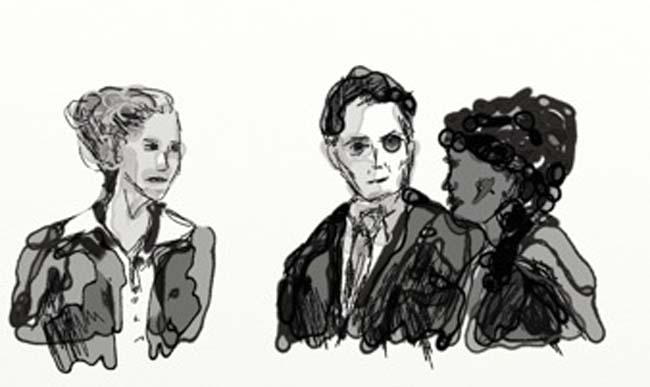When tabling at the Sadler Center, you generally don’t expect anything out of the ordinary to happen. You dispense materials, set up your tri-fold, and awkwardly smile at passersby, hoping someone will be interested in your cause (or maybe just in your free candy).
While I was tabling last Friday for the Spread the Word to End the Word Campaign, however, something unexpected did happen. A student and I had a rather long, in-depth discussion about the power of words.
After the student approached the table, I explained that the STWTETW Campaign asks people to sign pledges not to use the r-word (retarded) in a derogatory manner. As we talked, the student raised something that I hadn’t considered: The words associated with groups of people that are too frequently marginalized by society often become corrupted. This student paralleled the misuse of the word retarded with that of the word gay; both have been made falsely equivalent to something bad, stupid or wrong.
Thankfully, our campus is full of sensitive people who think of how their words could offend others. Yet, outside the walls of the College of William and Mary, such terms unfortunately have embedded themselves into the everyday speech of many Americans.
“What perpetuates the misuse of these words?” he asked me.
In response to this difficult question, I answered that in most cases, I don’t think people misuse such words to be intentionally hurtful. Rather, I think this perpetuation stems from a lack of understanding on the part of us so-called “normal” people. Many of us, myself included, don’t know what it’s like to be ostracized or marginalized for something different about us that we can’t control — a quality that can be ignorantly associated with a flaw. Due to this lack of empathy, we have a tendency to be more careless, not realizing the extent to which our words can make others feel devalued.
Nearing the end of our conversation, the student asked, “How do we stop this from happening?” He mentioned that having a family member or friend to whom such language would be offensive helps us become more sensitive. We think of how we wouldn’t want to hurt this person we love. I agreed, adding that I personally struggle with this, as I am neither assertive nor partcularly brave, and I don’t like to seem confrontational. But this student’s query reinforced to me that politely asking people to find an alternative, less offensive, more accurate word is more important than being perceived as pleasant and easygoing.
It is important to be advocates in our own circles; never underestimate the power of one person to inspire others to change. No matter how different a group of people may seem, they are still people that deserve to be respected and accepted. Sticks and stones may break bones, but words can hurt just as badly.
Email Andrea Aron-Schiavone at acaronschiavon@email.wm.edu.




































